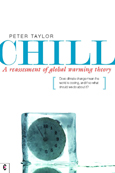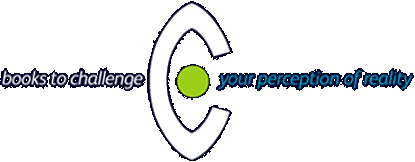A reassessment of global warming theory
Does climate change mean the world is cooling, and if so what should we do about it?

'Do you believe the earth is warming? Think again, says Peter Taylor, a committed environmental analyst with the unusual gift of following scientific evidence ruthlessly wherever it may lead. Taylor has done groundbreaking work on issues ranging from ocean pollution and biodiversity through renewable energy. Now he turns his relentless searchlight on climate change. His work has the ring of passion and the clarity of intellectual honesty. We can be certain his conclusions are the product of a fearless, unbiased, and intelligent intellectual journey by a remarkable mind, all the marks of genuine science. Taylor challenges us to look beyond our biases to whatever conclusions the evidence may justify. Believers in global warming such as myself may not find comfort here, but they will without question find a clear challenge to examine all the evidence objectively. At the very least, Taylor raises issues and questions that must be addressed conclusively before global warming can be genuinely regarded as "truth", inconvenient or otherwise. This book is a must-read for everyone on all sides of the climate change issue.' - W. Jackson Davis, professor emeritus, University of California, and author of the first draft of the Kyoto Protocol
Although the world's climate has undergone many cyclical changes, the phrase 'climate change' has taken on a sinister meaning, implying catastrophe for humanity, ecology and the environment. We are told that we are responsible for this threat, and that we should act immediately to prevent it. But the apparent scientific consensus over the causes and effects of climate change is not what it appears.
Chill is a critical survey of the subject by a committed environmentalist and scientist. Based on extensive research, it reveals a disturbing collusion of interests responsible for creating a distorted understanding of changes in global climate. Scientific institutions, basing their work on critically flawed computer simulations and models, have gained influence and funding. In return they have allowed themselves to be directed by the needs of politicians and lobbyists for simple answers, slogans and targets. The resulting policy - a 60% reduction of greenhouse-gas emissions by 2050 - would have a huge, almost unimaginable, impact upon landscape, community and biodiversity.
On the basis of his studies of satellite data, cloud cover, ocean and solar cycles, Peter Taylor concludes that the main driver of recent global warming has been an unprecedented combination of natural events. His investigations indicate that the current threat facing humanity is a period of global cooling, comparable in severity to the Little Ice Age of 1400-1700 AD. The risks of such cooling are potentially greater than global warming and on a more immediate time scale, with the possibility of failing harvests leaving hundreds of millions vulnerable to famine. Drawing on his experience of energy policy and sustainability, Taylor suggests practical steps that should be taken now. He urges a shift away from mistaken policies that attempt to avert inevitable natural changes, to an adaptation to a climate that is likely overall to turn significantly cooler.
PETER TAYLOR is a science analyst and policy advisor with over 30 years experience as a consultant to environmental NGOs, government departments and agencies, intergovernmental bodies, the European Commission, the European Parliament and the UN. His range of expertise stretches from pollution and accident risk from nuclear operations, chemical pollution of the oceans and atmosphere, wildlife ecology and conservation, to renewable energy strategies and climate change.
Published in the UK by Clairview Books, 15 June 2009
£14.99; 416pp; 23.5 x 15.5 cm; paperback; ISBN 9781905570195
